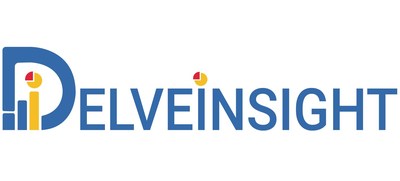Cancer Cachexia Market Anticipates Impressive Growth Trajectory at a CAGR of 8.9% During the Forecast Period (2025-2034) | DelveInsight
The cancer cachexia market is expected to witness an expansion across the 7MM, driven by the introduction of innovative therapies, ponsegromab (PF-06946860), S-pindolol benzoate (ACM-001.1), and TCMCB07, among others. Additionally, the rising prevalence of cancer cachexia, driven by factors such as an aging population, improved cancer survival rates that allow more patients to develop cachexia, increasing incidence of high-risk tumor types (e.g., lung and pancreatic cancers), and enhanced diagnostic awareness, continues to challenge clinical management.
LAS VEGAS, July 9, 2025 /PRNewswire/ -- DelveInsight's Cancer Cachexia Market Insights report includes a comprehensive understanding of current treatment practices, cancer cachexia emerging drugs, market share of individual therapies, and current and forecasted market size from 2020 to 2034, segmented into 7MM [the United States, the EU4 (Germany, France, Italy, and Spain) and the United Kingdom, and Japan].

Key Takeaways from the Cancer Cachexia Market Report
- According to DelveInsight's analysis, the market size for cancer cachexia was found to be USD 475 million in the 7MM in 2024.
- The United States accounted for the highest market size of cancer cachexia, approximately 58% of the total market size in 7MM in 2024, in comparison to the other major markets, i.e., EU4 countries (Germany, France, Italy, and Spain), the United Kingdom, and Japan.
- The current standard of care for cancer cachexia, which includes progestins, corticosteroids, and Tumor Necrosis Factor (TNF) inhibitors, among others, provides modest clinical benefit and, as per DelveInsight estimates, generated approximately USD 470 million in 2024, highlighting a substantial unmet need in this space.
- According to DelveInsight's estimates, the total diagnosed prevalent cases of cancer cachexia in the 7MM were around 1.4 million in 2024, which are expected to rise by 2034.
- Leading companies such as Pfizer, Actimed Therapeutics, Endevica Bio, AVEO Oncology (an LG Chem company), and others are actively advancing novel therapies for cancer cachexia, with several promising drugs expected to enter the market in the coming years.
- The promising cancer cachexia therapies in the pipeline include Ponsegromab (PF-06946860), S-pindolol benzoate (ACM-001.1; MT-102), TCMCB07, Rilogrotug (AV-380), and others.
- Estimates suggest that ponsegromab (PF-06946860) is expected to generate approximately USD 425 million in the 7MM by 2034.
Discover which therapies are expected to grab the major cancer cachexia treatment market share @ Cancer Cachexia Market Report
Cancer Cachexia Overview
Cancer cachexia is a multifactorial wasting disorder commonly observed in advanced stages of cancer. It is characterized by a progressive depletion of skeletal muscle and fat, resulting in profound weakness. Unlike general malnutrition, cancer cachexia does not improve with nutritional support alone. The condition is largely driven by systemic inflammation, with cytokines, proteins released by both tumor and host cells, playing a central role. These inflammatory mediators disrupt normal metabolic processes, triggering appetite loss (anorexia), insulin resistance (reduced glucose utilization), and a metabolic shift favoring tissue breakdown (catabolism) over tissue synthesis. This leads to a persistent energy deficit, especially in aggressive cancers such as pancreatic, lung, and head and neck cancers.
Diagnosing cancer cachexia is challenging due to the absence of a single diagnostic marker, requiring a comprehensive evaluation. This includes nutritional assessment tools like the Patient-Generated Subjective Global Assessment (PG-SGA) or Mini Nutritional Assessment (MNA), body composition analysis through imaging methods like computed tomography (CT), the gold standard, or alternatives such as dual-energy X-ray absorptiometry (DXA) and bioelectrical impedance analysis (BIA), as well as muscle strength tests like handgrip dynamometry.
Laboratory indicators such as low serum albumin and elevated C-reactive protein (CRP) can aid diagnosis but lack specificity. Composite scoring systems like the modified Glasgow Prognostic Score (mGPS) and the Cancer Cachexia Score (CASCO) offer a more holistic approach by integrating clinical, metabolic, and functional parameters to stage the condition and predict clinical outcomes.
Cancer Cachexia Epidemiology Segmentation
The cancer cachexia epidemiology section provides insights into the historical and current cancer cachexia patient pool and forecasted trends for the 7MM. It helps recognize the causes of current and forecasted patient trends by exploring numerous studies and views of key opinion leaders.
The cancer cachexia market report proffers epidemiological analysis for the study period 2020–2034 in the 7MM segmented into:
- Total Diagnosed Prevalent Cases of Cancer Cachexia
- Gender-specific Cases of Cancer Cachexia
- Tumor type-specific Cases of Cancer Cachexia
- Age-specific Cases of Cancer Cachexia
Cancer Cachexia Treatment Market
Progestational agents like MEGACE (megestrol) and medroxyprogesterone are known to stimulate appetite and promote weight gain in individuals suffering from anorexia and cachexia. A randomized, prospective clinical study comparing megestrol (800 mg/day) with dexamethasone (0.75 mg four times daily) found that both drugs had similar effects on enhancing appetite. However, megestrol was more frequently associated with thromboembolic complications, whereas dexamethasone was linked to side effects such as muscle weakness, Cushingoid appearance, and peptic ulcers.
Although corticosteroids and progestationalagents have shown effectiveness in treating cancer-related anorexia and cachexia, they generally do not produce significant long-term benefits for most patients. As a result, alternative interventions, including enteral and parenteral nutrition, have been widely explored. In January 2021, Ono Pharmaceutical's ADLUMIZ (Anamorelin) was approved in Japan for the treatment of cancer cachexia in patients with non-small cell lung cancer (NSCLC) and colorectal cancer (CRC).
Cytokine-targeted therapies have also been investigated. These therapies affect a range of tissues, including bone marrow, muscle, liver, fat, endothelial cells, and neurons, triggering complex biological responses that contribute to the muscle and weight loss seen in cachexia. Key cytokines implicated include tumor necrosis factor (TNF)-α, interleukins IL-1 and IL-6, and interferon-γ (IFN-γ). These molecules share similar metabolic roles and often act in a coordinated or synergistic manner. Therefore, treatment strategies have focused on inhibiting either their production or their downstream effects.
To know more about cancer cachexia treatment guidelines, visit @ Cancer Cachexia Treatment Options
Cancer Cachexia Pipeline Therapies and Key Companies
- Ponsegromab (PF-06946860): Pfizer
- S-pindolol benzoate (ACM-001.1; MT-102): Actimed Therapeutics
- TCMCB07: Endevica Bio
- Rilogrotug (AV-380): AVEO Oncology (an LG Chem company)
Discover more about cancer cachexia drugs in development @ Cancer Cachexia Clinical Trials
Cancer Cachexia Market Dynamics
The cancer cachexia market dynamics are expected to change in the coming years. Cancer cachexia affects a significant portion of late-stage cancer patients, creating a strong demand for effective therapies and presenting a valuable opportunity for companies to develop treatments, given the current lack of options and limited market competition.
Furthermore, potential therapies are being investigated for the treatment of cancer cachexia, and it is safe to predict that the treatment space will significantly impact the cancer cachexia market during the forecast period. Moreover, the anticipated introduction of emerging therapies with improved efficacy and a further improvement in the diagnosis rate are expected to drive the growth of the cancer cachexia market in the 7MM.
However, several factors may impede the growth of the cancer cachexia market. Studies have shown that cancer patients with cachexia respond poorly to chemotherapy, face a higher risk of infection, and have reduced survival, with mortality rates ranging from 0–80%, and at least 30% of cancer patients die from cachexia rather than the cancer itself.
Moreover, cancer cachexia treatment poses a significant economic burden and disrupts patients' overall well-being and QOL. Furthermore, the cancer cachexia market growth may be offset by failures and discontinuation of emerging therapies, unaffordable pricing, market access and reimbursement issues, and a shortage of healthcare specialists. In addition, the undiagnosed, unreported cases and the unawareness about the disease may also impact the cancer cachexia market growth.
Cancer Cachexia Market Report Metrics | Details |
Study Period | 2020–2034 |
Coverage | 7MM [The United States, the EU4 (Germany, France, Italy, and Spain) and The United Kingdom, and Japan]. |
Cancer Cachexia Market CAGR | 8.9 % |
Cancer Cachexia Market Size in 2024 | USD 475 Million |
Key Cancer Cachexia Companies | Pfizer, Actimed Therapeutics, Endevica Bio, AVEO Oncology (an LG Chem company), Helsinn Healthcare, Ono Pharmaceutical, and others |
Key Pipeline Cancer Cachexia Therapies | Ponsegromab (PF-06946860), S-pindolol benzoate (ACM-001.1; MT-102), TCMCB07, Rilogrotug (AV-380), ADLUMIZ, and others |
Scope of the Cancer Cachexia Market Report
- Therapeutic Assessment: Cancer Cachexia current marketed and emerging therapies
- Cancer Cachexia Market Dynamics: Key Market Forecast Assumptions of Emerging Cancer Cachexia Drugs and Market Outlook
- Competitive Intelligence Analysis: SWOT analysis and Market entry strategies
- Unmet Needs, KOL's views, Analyst's views, Cancer Cachexia Market Access and Reimbursement
Download the report to understand which factors are driving cancer cachexia market trends @ Cancer Cachexia Drug Treatment
Table of Contents
1 | Key Insights |
2 | Report Introduction |
3 | Cancer Cachexia Market Overview at a Glance |
3.1 | Market Share (%) Distribution by Therapies in the 7MM in 2024 |
3.2 | Market Share (%) Distribution by Therapies in the 7MM in 2034 |
4 | Executive Summary |
5 | Key Events |
6 | Disease Background and Overview |
6.1 | Introduction |
6.2 | Causes and Risk Factors |
6.3 | Pathophysiology |
6.3.1 | Role of Pain in the Pathophysiology of Cancer Cachexia |
6.4 | Clinical Manifestations |
6.5 | Laboratory Manifestations |
6.6 | Staging |
6.7 | Diagnosis |
6.7.1 | Differential Diagnosis |
6.7.2 | Diagnostic Algorithm |
6.7.3 | Diagnostic Guidelines and Recommendations |
6.8 | Treatment and Management |
6.8.1 | Treatment Algorithm |
6.8.2 | Treatment Guidelines and Recommendations |
7 | Methodology |
8 | Epidemiology and Patient Population |
8.1 | Key Findings |
8.2 | Assumptions and Rationale: The 7MM |
8.2.1 | Diagnosed Prevalent Cases of Cancer Cachexia |
8.2.2 | Gender-specific Cases of Cancer Cachexia |
8.2.3 | Tumor Type-specific Cases of Cancer Cachexia |
8.2.4 | Age-specific Cases of Cancer Cachexia |
8.3 | Total Diagnosed Prevalent Cases of Cancer Cachexia in the 7MM |
8.4 | The US |
8.4.1 | Total Diagnosed Prevalent Cases of Cancer Cachexia in the US |
8.4.2 | Gender-specific Cases of Cancer Cachexia in the US |
8.4.3 | Tumor Type-specific Cases of Cancer Cachexia in the US |
8.4.4 | Age-specific Cases of Cancer Cachexia in the US |
8.5 | EU4 and the UK |
8.5.1 | Total Diagnosed Prevalent Cases of Cancer Cachexia in EU4 and the UK |
8.5.2 | Gender-specific Cases of Cancer Cachexia in EU4 and the UK |
8.5.3 | Tumor Type-specific Cases of Cancer Cachexia in EU4 and the UK |
8.5.4 | Age-specific Cases of Cancer Cachexia in EU4 and the UK |
8.6 | Japan |
8.6.1 | Total Diagnosed Prevalent Cases of Cancer Cachexia in Japan |
8.6.2 | Gender-specific Cases of Cancer Cachexia in Japan |
8.6.3 | Tumor Type-specific Cases of Cancer Cachexia in Japan |
8.6.4 | Age-specific Cases of Cancer Cachexia in Japan |
9 | Patient Journey |
10 | Marketed Drugs |
10.1 | ADLUMIZ (anamorelin hydrochloride): Helsinn Healthcare/Ono Pharmaceutical |
10.1.1 | Product Description |
10.1.2 | Regulatory Milestones |
10.1.3 | Other Developmental Activities |
10.1.4 | Clinical Trials Information |
10.1.5 | Safety and Efficacy |
List to be continued in the final report…. | |
11 | Emerging Drugs |
11.1 | Key Cross Competition |
11.2 | Ponsegromab (PF-06946860): Pfizer |
11.2.1 | Drug Description |
11.2.2 | Other Developmental Activities |
11.2.3 | Clinical Trials Information |
11.2.4 | Safety and Efficacy |
11.2.5 | Analysts' View |
11.3 | S-pindolol benzoate (ACM-001.1; MT-102): Actimed Therapeutics |
11.3.1 | Drug Description |
11.3.2 | Other Developmental Activities |
11.3.3 | Clinical Trials Information |
11.3.4 | Safety and Efficacy |
11.3.5 | Analysts' View |
11.4 | TCMCB07: Endevica Bio |
11.4.1 | Drug Description |
11.4.2 | Other Developmental Activities |
11.4.3 | Clinical Trials Information |
11.4.4 | Safety and Efficacy |
11.5 | Rilogrotug (AV-380): AVEO Oncology (an LG Chem company) |
11.5.1 | Drug Description |
11.5.2 | Other Developmental Activities |
11.5.3 | Clinical Trials Information |
List to be continued in the final report…. | |
12 | Cancer Cachexia – 7MM Market Analysis |
12.1 | Key Findings |
12.2 | Key Market Forecast Assumptions |
12.2.1 | Cost Assumptions and Rebates |
12.2.2 | Pricing Trends |
12.2.3 | Analogue Assessment |
12.2.4 | Launch Year and Therapy Uptake |
12.3 | Market Outlook |
12.4 | Attribute Analysis |
12.5 | Total Market Size of Cancer Cachexia in the 7MM |
12.6 | Market Size of Cancer Cachexia by Therapies in the 7MM |
12.7 | The US |
12.7.1 | Total Market Size of Cancer Cachexia in the US |
12.7.2 | Market Size of Cancer Cachexia by Therapies in the US |
12.8 | EU4 and the UK |
12.8.1 | Total Market Size of Cancer Cachexia in EU4 and the UK |
12.8.2 | Market Size of Cancer Cachexia by Therapies in EU4 and the UK |
12.9 | Japan |
12.9.1 | Total Market Size of Cancer Cachexia in Japan |
12.9.2 | Market Size of Cancer Cachexia by Therapies in Japan |
13 | Key Opinion Leaders' Views |
14 | Unmet Needs |
15 | SWOT Analysis |
16 | Market Access and Reimbursement |
16.1 | The United States |
16.1.1 | CMS |
16.2 | EU4 and the UK |
16.2.1 | Germany |
16.2.2 | France |
16.2.3 | Italy |
16.2.4 | Spain |
16.2.5 | The United Kingdom |
16.3 | Japan |
16.3.1 | MHLW |
17 | Appendix |
17.1 | Acronyms and Abbreviations |
17.2 | Bibliography |
17.3 | Report Methodology |
18 | DelveInsight Capabilities |
19 | Disclaimer |
20 | About DelveInsight |
Related Reports
TNF-alpha Inhibitors Market Size, Target Population, Competitive Landscape & Market Forecast – 2034 report deliver an in-depth understanding of the market trends, market drivers, market barriers, and key TNF-alpha inhibitors companies, including AbbVie, Amgen, Johnson & Johnson (through Janssen Biotech), UCB, Pfizer, Merck, Samsung Bioepis, Biogen, Takeda Pharmaceutical Company, among others.
Cancer Cachexia Pipeline Insight – 2025 report provides comprehensive insights about the pipeline landscape, pipeline drug profiles, including clinical and non-clinical stage products, and the key cancer cachexia companies, including Actimed Therapeutics Ltd, Pfizer, AVEO Pharmaceuticals, Inc., NGM Biopharmaceuticals, Endevica Bio, CSPC Pharmaceutical Group Limited, Caelus Health, among others.
Cancer Anorexia Market Insights, Epidemiology, and Market Forecast – 2034 report delivers an in-depth understanding of the disease, historical and forecasted epidemiology, as well as the market trends, market drivers, market barriers, and key cancer anorexia companies, including Helsinn Healthcare, Artelo Biosciences, NGM Biopharmaceuticals, among others.
Cancer Cachexia Pipeline Insight – 2025 report provides comprehensive insights about the pipeline landscape, pipeline drug profiles, including clinical and non-clinical stage products, and the key cachexia companies, including Tvardi Therapeutics, TMS Co. Ltd, RaQualia Pharma, Pfizer, Pephexia Therapeutics, Oncocross, NGM Biopharmaceuticals, MGC Pharmaceuticals, Keros Therapeutics, Incyte Corporation, ImmunoForge, Immuneering Corporation, Green Cross Wellbeing, GlaxoSmithKline, Faraday Pharmaceuticals, Extend Biosciences, Energenesis Biomedica, Endevica Bio, CNBX Pharmaceuticals, CatalYm, Caelus Health, AVEO Oncology, Artelo Biosciences, Aphios Corporation, AliveGen, AEterna Zentaris, Actimed Therapeutics, AAVogen, among others.
About DelveInsight
DelveInsight is a leading Business Consultant and Market Research firm focused exclusively on life sciences. It supports pharma companies by providing comprehensive end-to-end solutions to improve their performance. Get hassle-free access to all the healthcare and pharma market research reports through our subscription-based platform PharmDelve.
Contact Us
Shruti Thakur
info@delveinsight.com
+14699457679
www.delveinsight.com
Logo: https://mma.prnewswire.com/media/1082265/3528414/DelveInsight_Logo.jpg
![]() View original content:https://www.prnewswire.co.uk/news-releases/cancer-cachexia-market-anticipates-impressive-growth-trajectory-at-a-cagr-of-8-9-during-the-forecast-period-20252034--delveinsight-302500954.html
View original content:https://www.prnewswire.co.uk/news-releases/cancer-cachexia-market-anticipates-impressive-growth-trajectory-at-a-cagr-of-8-9-during-the-forecast-period-20252034--delveinsight-302500954.html

